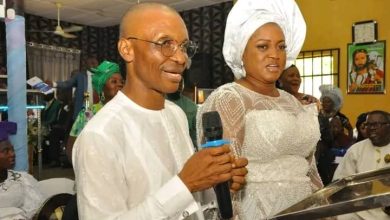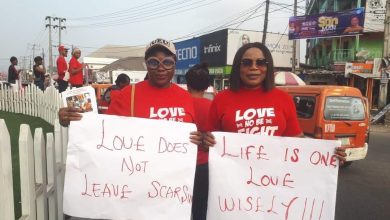ONE HOUSEHOLD, ONE BOREHOLE

Ita Utuk, an ambitious young Administrative Officer in one of the Government Ministries thought he had gathered enough money to start building a house for his family in one of the residential estates in Uyo, Capital City of Akwa Ibom State.
Initially, the young man did not include the sinking of a borehole in his costing.It did not just occur to him that in Uyo, just like across Nigeria, individuals have since become their own governments; providing every known social service for themselves and their households.
The hapless young man had to look for additional money by sourcing for a loan to begin from the beginning by drilling a borehole to provide a source of water for the needs of his construction workers. The borehole would also serve the needs of his household at the completion of the building.
Mr.Utuk’s experience represents what most people in most villages, towns and cities in Nigeria of the 21st century have to deal with as they grow up.
Incidentally, the provision of safe drinking water was one of the critical Millenium Development Goals (MDG’s)which was expected to have been achieved by 2015. It is also an important item on the agenda of Sustainable Development Goals (SDG’s), the successor programme to the Millenium Development Goals.
For Mr Utuk and other house owners , sinking a borehole, besides being a necessity has become one of the status symbols in the neighbourhood. A common sight seen if one walked around residential areas in our cities would be water storage tanks mounted on high stanchions. Gone are the days when young children , teenagers and adults who didn’t have helping hands carried cans to go and fetch or struggle for water in public taps.
This Columnist has a vivid memory of what fun it was to wake up early and go out in the morning to get water even though sometimes then, the competition to fill one’s can first, led to skirmishes and in several instances, resulted in actual fights among neighbours, schoolmates and friends.
Nevertheless, such exposures toughened one up and imbued in people a sense of self discipline and a responsibility to wake-up early and set out for engagements of the day.Such involvement also deepened the sense of community so unique to Africans.
Unfortunately at present, the sight of anybody clutching a water can to fetch water in public , outside one’s house indicates serious lack and poverty.
The abdication of its responsibility by government to provide clean drinking water which would have served the household needs of its citizens accounts for the resort to the self help efforts by individuals in this respect .
Indeed, most individuals have become their own governments in the provision of such basic needs like water and electricity supply.This is one of the tragedies of life in Nigeria despite the fact that the provision of a basic need like clean source of water is key to prevention of several primary diseases.
The incidence of One Household, One Borehole has several downsides .Experts believe that the intensity of the number of boreholes in a location creates the risk of low volume in such localities.According to a Co- Ordinator of the National Water Resources Capacity Building Network , Dr.Adeniyi Aremu , ” the sinking of boreholes here and there could , in the long term cause earthquakes” ! Although such an occurrence seems very remote in the West African sub – region, the thought of that known unknown circumstance should not be dismissed off-hand.If an earthquake seems unthinkable , the problem of occassional cave – ins is not that distant.That is a present danger.
There is also the hazard of contamination of the source of drinking water due to proximity of boreholes to septic tanks, pit toilets and other pollutants in the immediate vicinity.This is because,as at now , no professional body or Government Agency regulates the business of sinking boreholes.It is done haphazardly, more often, without any technical advice by professionals in the sector. Another problem item is the absence of treatment for impurities, regular maintenance of both the borehole and the surface water storage tanks.
In a society where anything goes , the proliferation of quacks in the borehole drilling business also calls for much concern.There is also the issue of intrusion of salty water particularly in the coastal areas.
The sad reality of One Household , One Borehole apart from being a sign of a collapsed system goes against the goal of environmental sustainability which was one of the goals of the Millenium Development Goals and is also on the agenda of Sustainable Development Goals.
Is this how the safe drinking water demand of future generations would be met ?
It is important for the government to interface with Donor Agencies, collaborate with them to build sustainable public water schemes ,manage the reticulation into streets and homes for the people so that individuals like Mr.Utuk would not have to sink a private borehole to serve their household needs.
Government’s intervention would also ensure the provision of safe drinking water, regulation and proper monitoring of the water industry.
The Government should be the most powerful institution after God, however, in Nigeria , it seems like private citizens have become more powerful because successive governments have abandoned the citizens to fend for themselves. Irresponsibility sets in wherever authorities fail to discharge their responsibilities.




